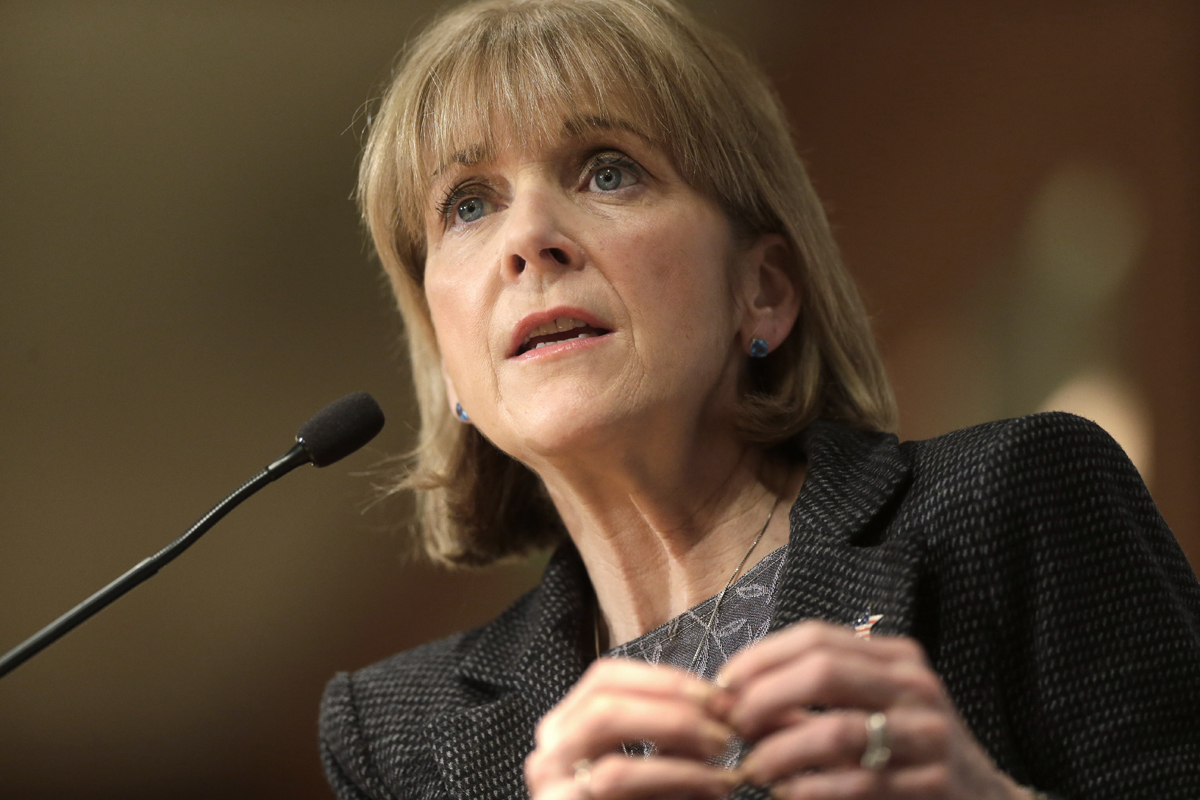Martha Coakley Takes a Calculated Risk

Photo via AP
Martha Coakley filed to accept public funding under the state’s system, which took a lot of people in and around the gubernatorial campaigns by surprise, in a move that appears to be a calculated risk at grabbing some free money without incurring any penalty under the Commonwealth’s weird rules.
The current Massachusetts “limited public financing” system requires candidates for statewide office to declare in or out, for both the primary and general elections, at this early date. By opting in, Coakley stands to receive up to $750,000 from the state for the primary campaign, and another $750,000 for the general election—although in reality, she will receive less because the public financing system, which is funded through a tax form check-off, is woefully underfunded, and she may be splitting it with others.
In exchange, she agrees to cap her total spending from now to the September primary at a mere $1.5 million, which is frankly not very much for a major, competitive, top-of-the-ticket race like this. But in fact, that cap will not apply to her. The rule is that if any of the competitors opt out—as, for instance, Steve Grossman has done—then the $1.5 million limit goes out the window.
Instead, those opting out must declare, later this week, the upper limit for what they will spend. The highest bid becomes the upper limit for everybody. Grossman will probably name an upper limit for the primary of maybe $10 million to be safe.
So the practical result is that Coakley gets to raise and spend as much as she can, plus get a bonus check for maybe $250,000. (A quick aside: If you’re getting confused about all this, that’s a normal, healthy reaction. The current system is a total mess.)
Likewise, for the general election, Coakley has theoretically agreed to spend no more than $1.5 million after the primary, a fraction of what the major-party nominees typically spend. But since Charlie Baker has opted out (as he and Deval Patrick both did in 2010), again Coakley will get some free cash from the state while presumably having a super-high limit set by Baker.
It’s possible, however, that Baker could pull a fast one on her. The limit is now entirely at his discretion if Coakley becomes his opponent; perhaps he could set the limit at $1.5 million, severely limiting them both, and hope that his friendly independent expenditure groups outgun hers.
That, at least, is the implication from the Grossman campaign. In a statement to me, Grossman campaign manager Josh Wolf said that Grossman opted out of the public financing system “to make sure Steve would be in the best position to beat Charlie Baker in the general election.” That is, to make sure he can spend whatever it takes, and not risk having Baker limit it.
Meanwhile, Coakley was quickly attacked from the other side for her decision. The state Republican Party put out a release headlined “Coakley Campaign Short On Cash Looks To Taxpayers For Even More Support.” The “more support” is a reference to Coakley’s recently reported tardiness in reimbursing the state for campaign travel expenses.
I should mention, by the way, that it’s possible that Coakley opted in not because she figured a way to game the system, but because she wants to hold true to her deeply-held principled belief in public financing as a means to ensure clean elections and officeholders unbeholdened to donors. Possible. Regardless, she now gets to claim such principle, while chiding Grossman for abandoning such progressive purity. Plus, she gets the money and he doesn’t. Well played.
Principles generally have little to do with the lower-tier candidates opting in; they need the free funds, and besides, they would love to see their better-supported competitors agree to low limits. Hence, Republican Mark Fisher and Democrats Joe Avellone and Donald Berwick have opted in.
Interestingly, Juliette Kayyem opted out. That suggests that either she hopes for a major flood of contributions later, if and when she qualifies for the ballot at the state convention later this month; or, she has a stash of savings she plans to self-fund with later on. (The latter has been the subject of some rumor and speculation.)
The rest of the statewide candidates have also made their declarations, although for them, sadly, it is probably a moot exercise. What little money the public financing fund has—a little over $1.2 million, or $600,000 each for the primary and general—goes first to qualifying gubernatorial candidates. Coakley’s decision to opt in should ensure that there is no leftover to trickle down to the lower ranks.
But, for the record: all the Democratic candidates for Lieutenant Governor opted into the system while Republican Karyn Polito opted out. The others opting in are Republican candidate for Secretary David D’Arcangelo; Democratic candidate for Treasurer Tom Conroy; and Auditor candidates Suzanne Bump and Patricia Saint Aubin.
Among those opting out is Attorney General candidate Warren Tolman. I wrote earlier this year that Tolman, a long-time advocate of public financing, would not commit to participating in the system this year. He has not. But, his Democratic and Republican competitors have also opted out, so they don’t have much standing to criticize him.
Finally, let me reiterate that the public financing system is woefully underfunded. That is because the Massachusetts public, in overwhelming super-majority percentages, refuses to check off the funding box that literally costs them absolutely nothing. I’m not sure whether to conclude that the public really, really dislikes public campaign financing; or are really, really bad at understanding tax form check-off boxes. I’m guessing both.

